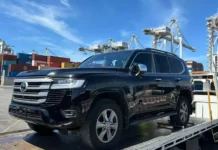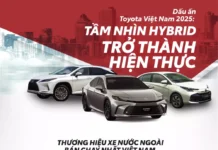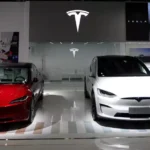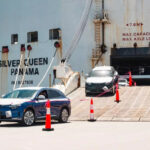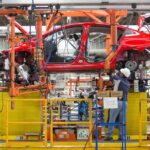The impacts of the trade war are being felt at ports across America. Triggered by President Donald Trump’s aggressive tariff strategy, this trade war has not only rocked the stock market with unexpected rises and falls, but it has also forced car manufacturers to seriously reconsider their operations in the country.
Although Trump has temporarily halted the widespread implementation of reciprocal tariffs for 90 days for many countries, the 25% import tax on cars and auto parts remains in place. For carmakers, this is a warning signal that cannot be ignored.
Many automotive brands have chosen a strategy of inaction, recognizing that the American President can swiftly and unpredictably change his mind. Currently, thousands of new imported cars are being held back at ports across the US. Meanwhile, several brands have temporarily halted vehicle shipments to America to avoid paying unnecessary taxes.
According to interviews with anonymous leaders in the import-export and automotive sectors for the Financial Times, imported vehicles are piling up at US ports, with some nearing maximum capacity. Companies such as Aston Martin, Audi, Jaguar Land Rover, and Mitsubishi have paused exports to America, hoping that current inventory levels will suffice until long-term solutions are found with US trading partners.
Car manufacturers are evidently seeking ways to avoid the new, high taxes. Besides holding vehicles at US ports before importers have to pay taxes and release them to the market, some brands want to transfer cars to bonded warehouses in America. These warehouses allow for tax-free storage.
The ambiguity surrounding the new taxes is also causing concern. Although Trump recently imposed a blanket 25% tariff on all imported cars and announced plans to tax auto parts made abroad from May 3rd, many details remain unclear.
“We don’t know what constitutes an auto part,” said an executive from a German carmaker to the Financial Times reporter. “Is it an engine, or is it every single bolt in the engine?” This question is indeed reasonable. Until official guidance is provided, American car owners may find themselves without the necessary components. This will not only inconvenience those needing repairs but also be a disaster for maintenance centers facing unfixable vehicles.


